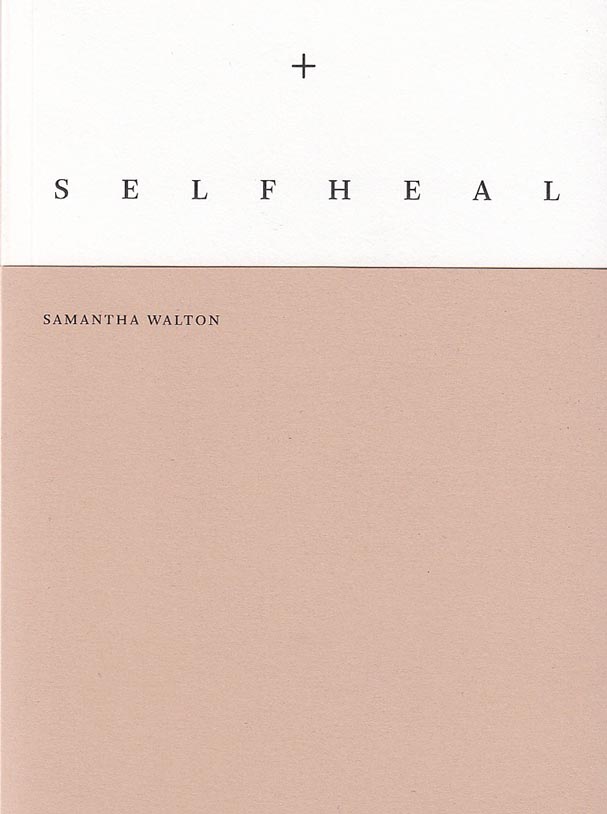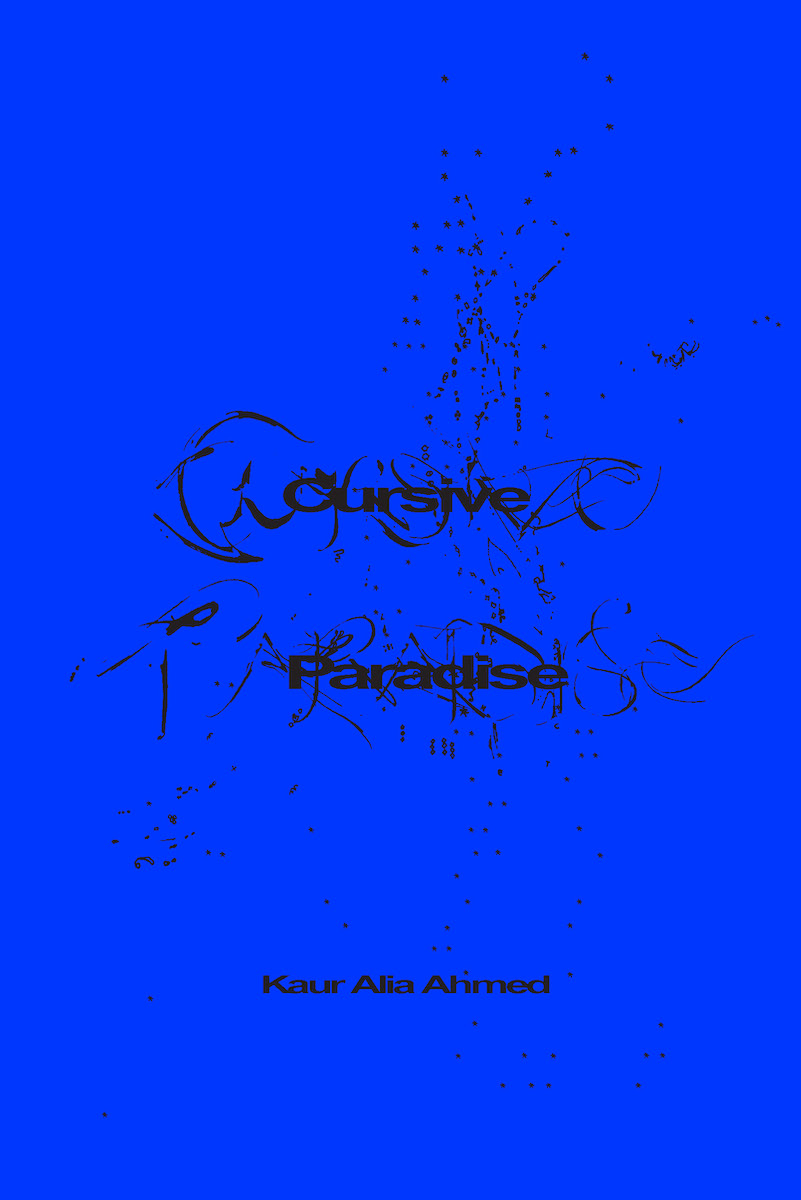Kaur Alia Ahmed’s Cursive Paradise asks how a refusal of cogency can lyrically expand perception. They write, “To weigh heavily on something / is to decide its shape,” and throw language into a state of excess. These poems shift and eddy, loop, and undulate, seeking out spaces of desire and onomatopoeic attraction. All the while, Ahmed offers a view of subjectivity and gender made resonant and malleable, insisting on language that is lush with what cannot be contained by the voice or the page.
Cursive Paradise is the recipient of the 2021 Carolyn Bush Award.
Kaur Alia Ahmed is an artist and writer living in New York. He is interested in destabilizing language, handling it in similar ways to ink, skin, light. His work has been presented at Interstate Projects, 77 Mulberry, Alyssa Davis Gallery, island gallery, Entrance Gallery, and The Drawing Center. His poems can be found in the Poetry Project Newsletter, Baest Journal, Spoil Magazine, BOMB Magazine, and Rhizome. Cursive Paradise is his first book.
Cursive Paradise forces us to rethink feeling, to enter a world where purple is sharp and where nectar leaves us spellbound. Kaur’s writing shapes a space where form and function give up their historical antinomy and renders the world in layers—of light, fluid, fetish, and fissure—breaking the lyric down to its guttural release.
— Bianca Rae Messinger
Kaur Alia Ahmed offers gleaming edges around the most beautifully staged immediate action. I read certain parts over and over, becoming more conscious of the physical dependence our bodies form in relation to words and music. These lines leap at the least provocation. Ahmed infuses the overall arrangement (visual, orchestral, narrative) with as much yearning as the language itself, leaving us a perfect, wavering space to land.
— Cedar Sigo
This is indeed a cursive paradise, but you’ll find no italics here. Emphasis happens differently, through repetition (if you catch Stein’s drift). Kaur Alia Ahmed’s poems, odes to momentum and transformation, refuse to settle into a single form. They propel readers forward and reward their desire to linger on their electric, libidinally charged utterances by having them recur, rearranged and slightly altered, again and again.
— Mónica de la Torre







